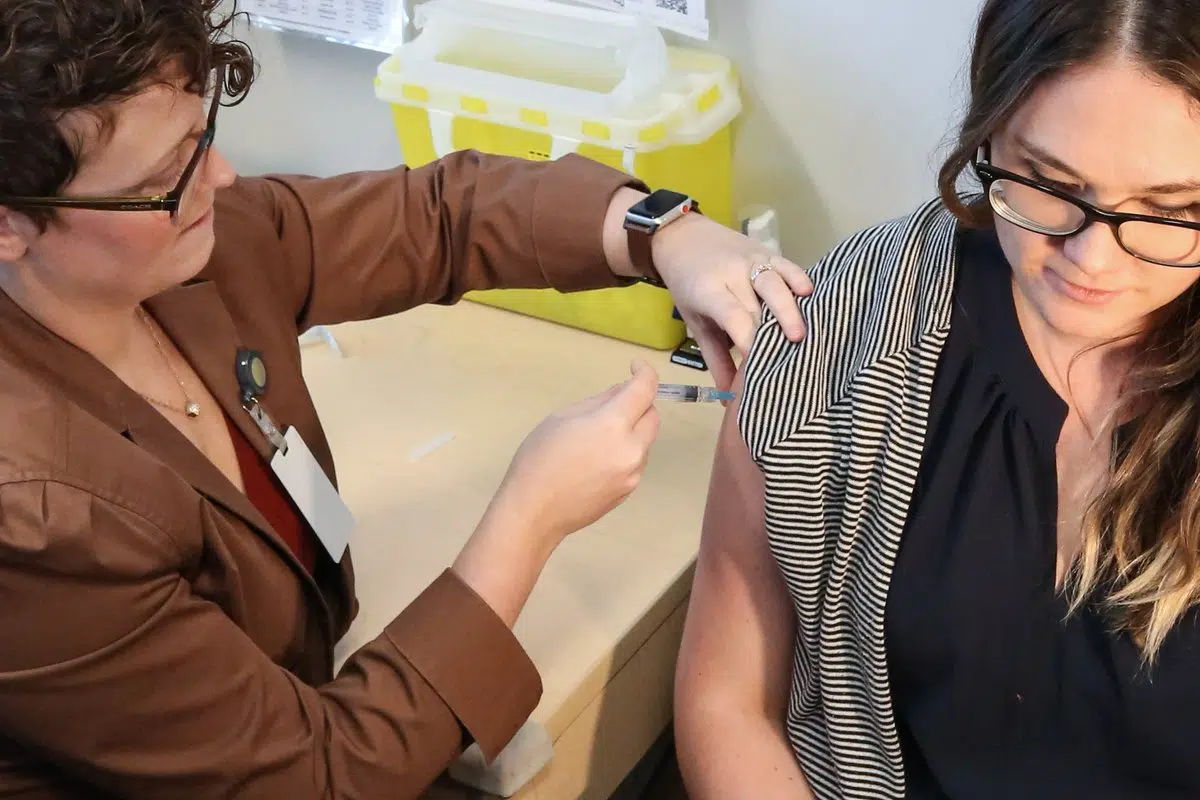
(Photo: Government of New Brunswick/Twitter)
A third case of measles has been confirmed in the Saint John region.
Dr. Jennifer Russell, the province’s chief medical officer of health, said Friday the case is linked to a previous confirmed case at Kennebecasis Valley High School (KVHS).
Russell said they set up a special immunization clinic at the school on Friday for students and staff.
“We know that if somebody is exposed to measles during the time that someone is contagious — that if you get a dose of the [measles, mumps and rubella (MMR)] vaccine within 72 hours, that is protective against measles,” said Russell.
Russell said it is “highly recommended” that students and staff take part in the clinic, but Department of Health spokesperson Bruce Macfarlane reiterated it is not mandatory.
“Over the course of the day and with the tremendous turnout at the school clinic, Public Health believes that we have created sufficient herd immunity to protect most students and staff,” said Macfarlane in an email Friday afternoon.
“As such, Public Health will not be excluding non-participants but thank those that did accept the vaccine.”
“Herd immunity” is created when large groups of people are vaccinated against a specific infectious disease, according to Health Canada. The agency says because measles spreads easily, at least 95 per cent of people need to be vaccinated for “herd immunity” to work.
Third confirmed case of measles in Saint John: https://t.co/SfCXIuESBF
— N.B. Dept. of Health (@NBHealth) May 24, 2019
In a notice sent to parents ahead of the clinic, Anglophone South School District superintendent Zoë Watson said students and staff who do not receive the vaccine “may be excluded from school for 21 days.”
Watson said students are being allowed to sign their own consent forms “due to the 72-hour timeframe and our priority to protect all students and staff.”
Students who are currently excluded from school should not attend the clinic.
Those who received the MMR or another live vaccine within the last month should also not get the MMR vaccine on Friday.
People who are pregnant or immunocompromised should not receive a live vaccine and Public Health recommends they stay home from school until further advice can be given.
Health officials say early symptoms of measles may include fever, cough, or tiny white spots in the mouth. Within three to seven days, a red blotchy rash will appear, first on the face and then spreading to the body, arms and legs.
Russell has said adults born between 1970 and 1995 are most at risk as they may not have received a second dose of the vaccine.




